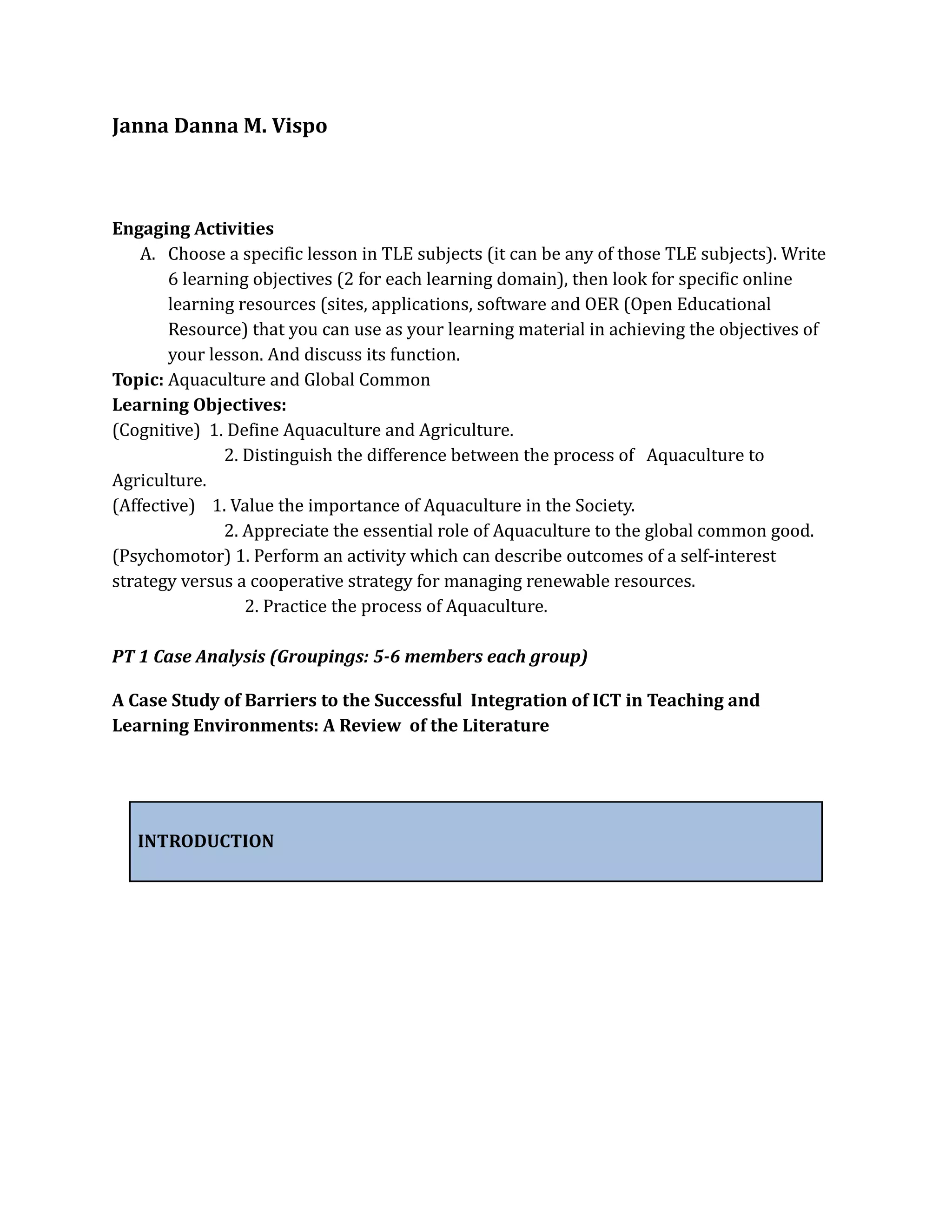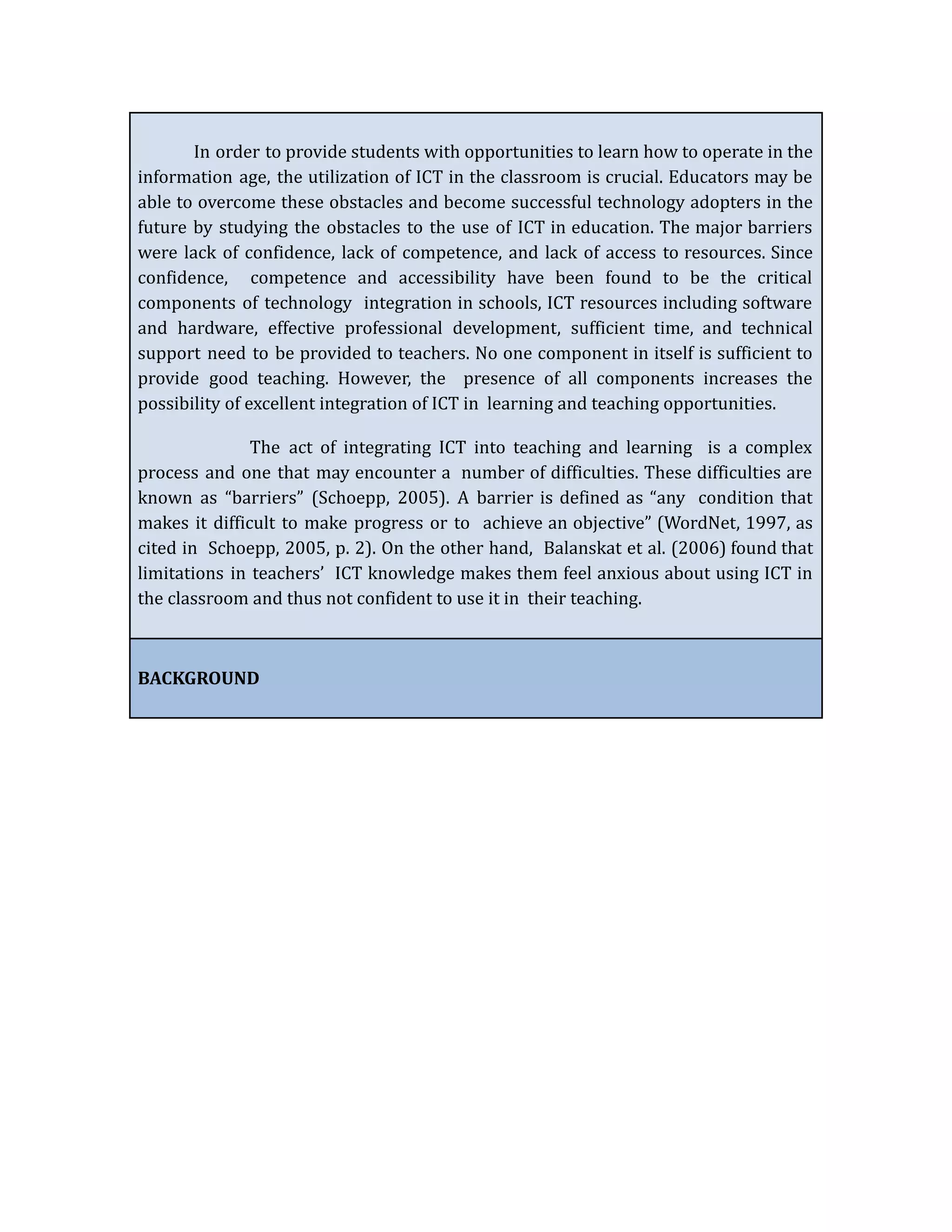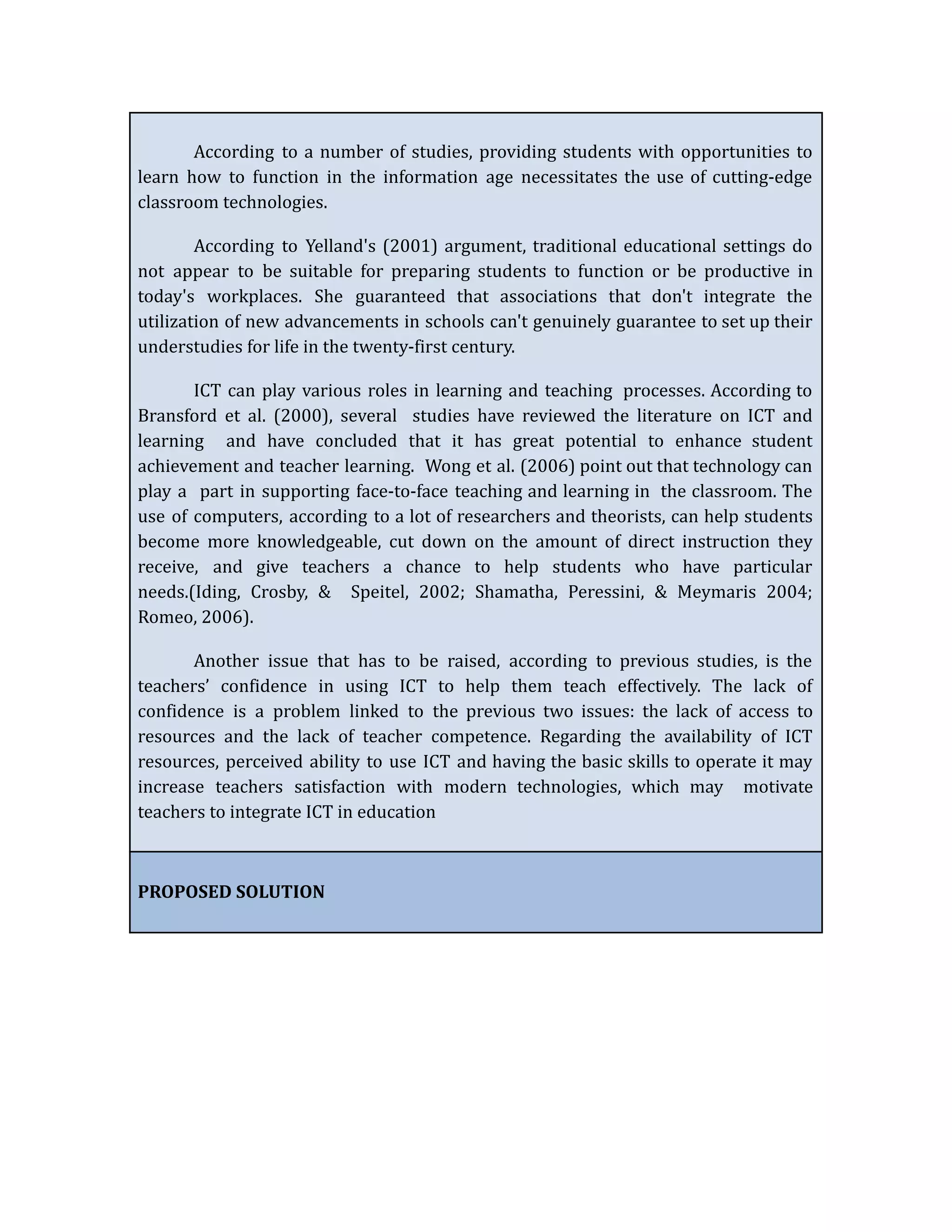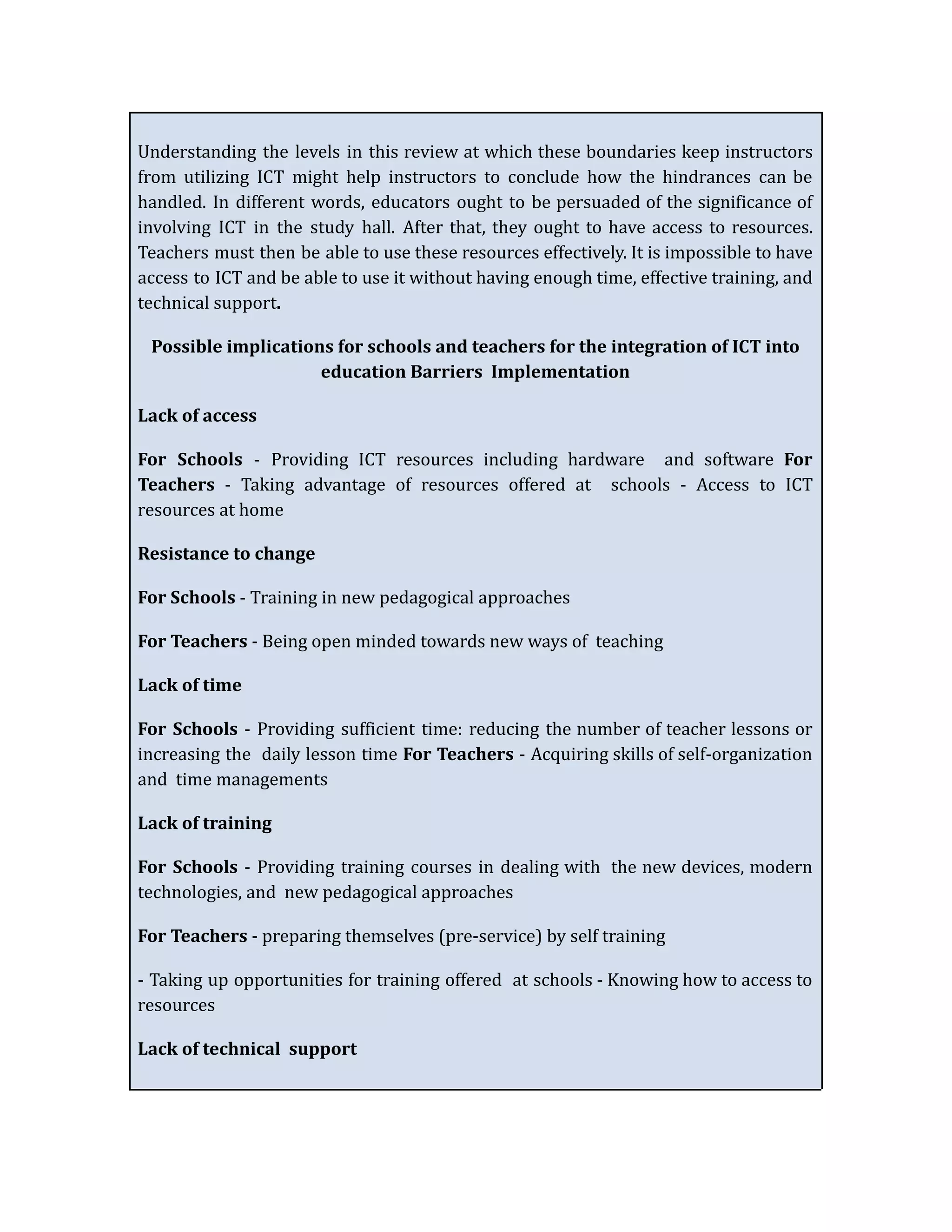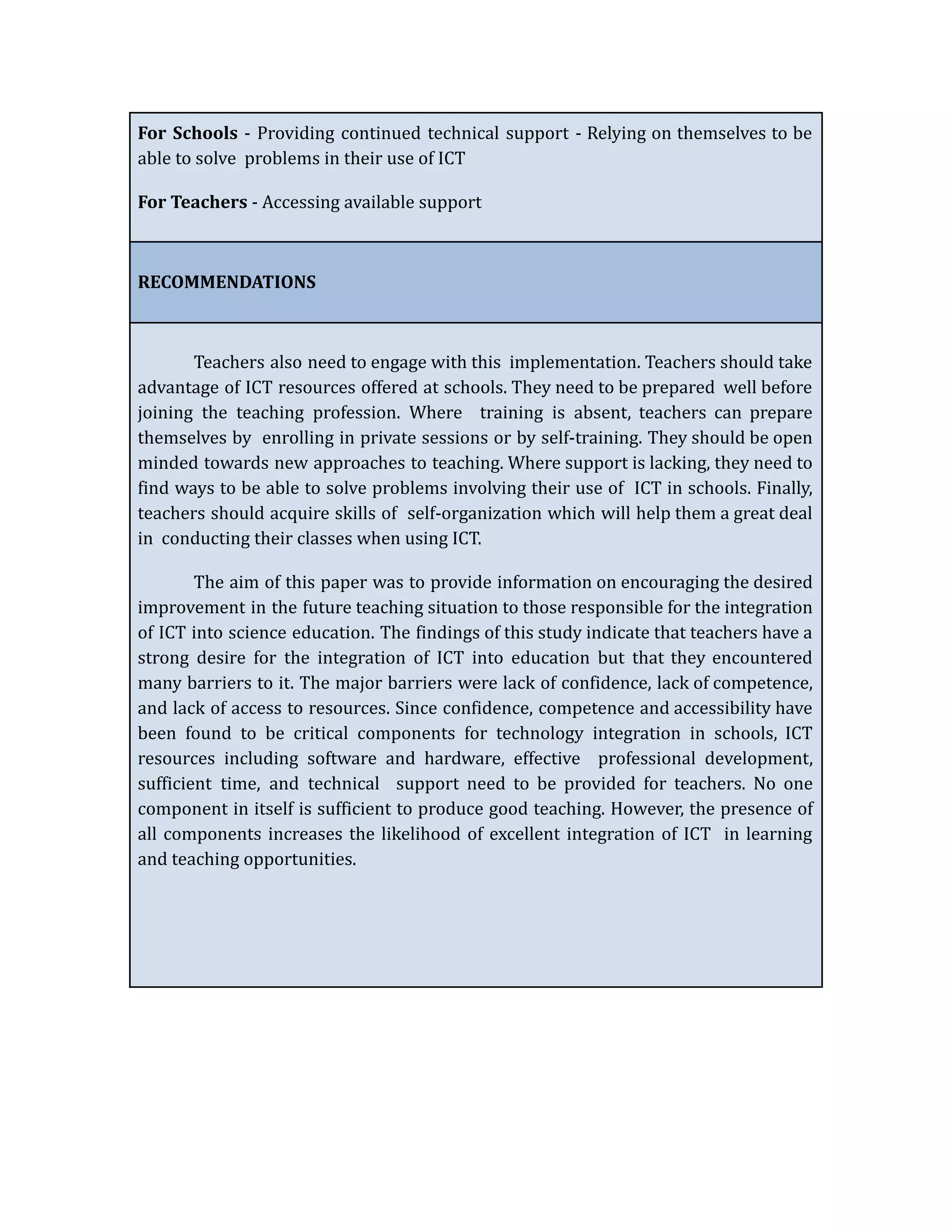The document discusses barriers to integrating information and communication technology (ICT) into teaching and learning environments based on a review of literature. The major barriers identified are lack of teacher confidence, competence, and access to resources for using ICT. Providing teachers with ICT resources like hardware, software, training, time, and technical support can help overcome these barriers and improve integration of ICT into classrooms. Understanding the barriers that inhibit teachers from using ICT and how to address them, such as improving access to resources and teacher skills, is important for effective integration of technology into education.
